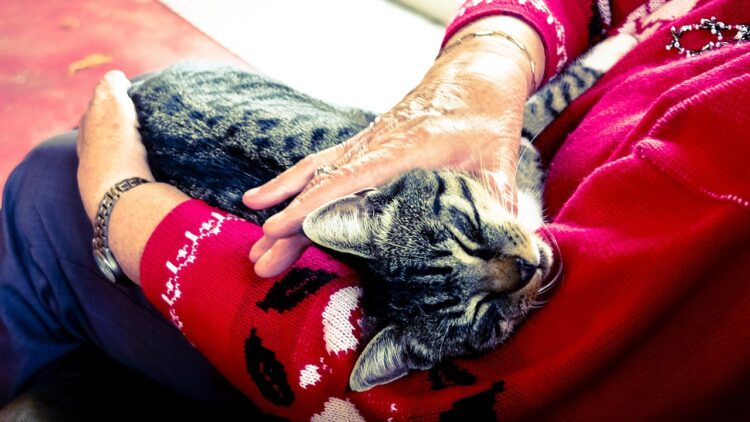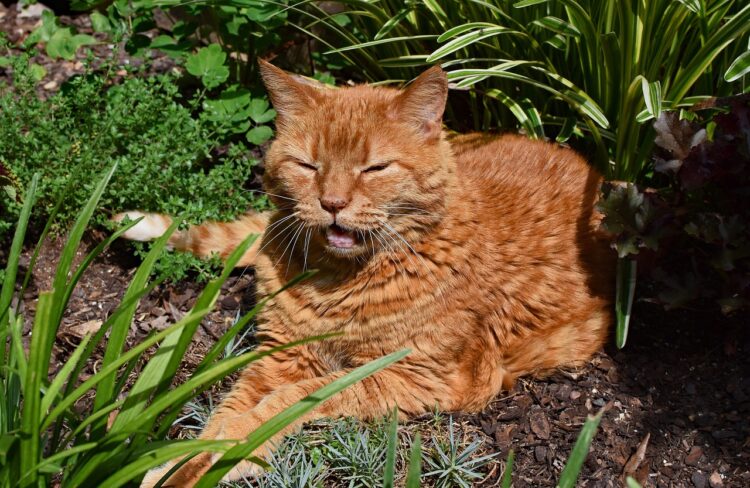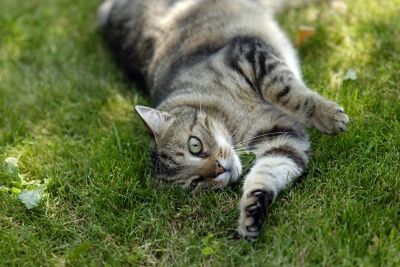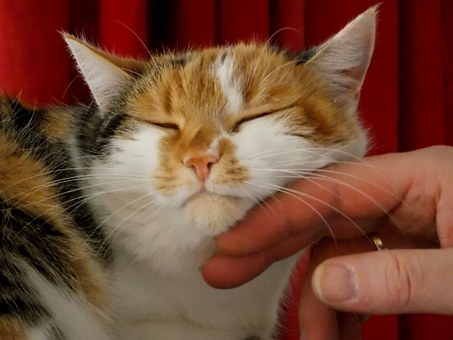How to Help An Aging Cat
This article was previously published February 8, 2014, and was updated on September 10, 2023.
One day your cat can no longer jump on top of things they once used as their perch, such as the refrigerator or bookshelf. You may also notice your cat’s appetite or weight begins to wane, their sleeping time increases and even their playtime habits change as they slow down. Even though cats tend to age more gracefully than other pets, they still age.
According to ‘America’s Veterinarian’ Dr. Marty Becker, author of 22 books and three time New York Times best seller, there are several things you can do to help both you and your cat enjoy their golden years.

Medical issues
There are many common medical problems in aging cats. They include cancer, renal disease, overactive thyroid, intestinal issues, pancreatitis and diabetes. Less well known problems are kitty senility, decreases in vision, hearing and loss of the sense of smell and taste.
One of the worrisome health problems with our aging feline friends, Dr. Becker explains, is arthritis. This degenerative, inflammatory disease is often the reason many cats suddenly stop jumping around or on top of things as much, and they lose touch with their playful inner kitty.
How can you tell if your cat is affected? Watch out for these signs that something isn’t right in their world.
Behavior changes include crying in the night, not consistently using the litter box or getting lost in the house. Their appetite may change, their coat may look unkempt, or they may suddenly gain or lose weight. They may also act confused about relating to family members, which is a significant sign there is a problem.
Of course, these are not always just signs of aging! They can also be indicators of dental disease, cancer or arthritis, or other serious medical conditions, so do not write off behavior changes as simply aging problems. It’s important to seek the expertise of a qualified veterinarian, especially a vet who specializes in feline and geriatric care.
Cats are masters at hiding things so the symptoms of problems can be subtle.
Tips to make things easier for your furry feline friend
1. Reconsider and adjust things like the height of their favorite perch, window seat or shelf. You may even offer them a safe, secure and warm bed on the floor where they can easily reach it.
2. Notice how difficult it might be for them to step into and out of their litter box. Jumping in and out of a tall litter box can become quite a challenge as they get older, especially if your cat has arthritis or hip problems or any kind of back pain.
3. Be sure the litter is the right depth. If it’s too deep it is like wading through sand; it’s hard to move around easily especially as their balance and strength decrease. If it’s not deep enough, they could splash themselves or not be able to cover anything up which makes them uncomfortable.
4. Aging cats also tend to display less interest in being stroked, brushed and touched by their human caretakers than they may have before. They do still need to be touched and brushed, and may even require more help with their coat like bathing or grooming. Be patient and gentle when you interact with them and do what needs doing in small baby steps so as not to stress them overmuch.
5. They may be less inclined to play, or have less stamina for the games they used to enjoy so much. You can still offer games and let them watch you or others play which encourages them to enjoy the activity. And they may get so enthused they decide that they want to join in after all!

The very best way to know for sure what your kitty is actually going through is to communicate with them so they can tell you what their experience actually is from their viewpoint. What they tell you will help your vet best know how to help them feel better for as long as possible.
Catching problems in time to be proactive will make all the difference in your ability to resolve whatever it is as quickly and easily as possible. At the least you can take action to help ease their symptoms and slow the aging process.
Download my FREE Ebook Hidden Secrets to Communicating with Cats – just click on the picture below!
Bio: Val Heart – Expert animal communicator, speaker, bestselling author & master healer, Val is often called The Real Dr Doolittle™ and Animal Communicator to the Stars. Founder of The HEART System™ for solving problems with pets. Learn about the Animal Talk Coaching and Mastery Club at http://www.animaltalkcoachingclub.com
© Copyright, Val Heart & Friends LLC. All Rights Reserved. Reprint rights by request only.
References:
WebMD http://pets.webmd.com/cats/guide/aging-cats-qa
Photo Source: courtesy of dan / Free Digital Photos
Did you enjoy this article on aging cats? Cat lovers also enjoyed these popular posts:
How to Stop Cats From Fighting
Environmental Enrichment for Indoor Cats
The Causes, Symptoms, and Solutions for Cat Hairballs







very good article .i have six cats of all ages that more or less get on with each other.
very good article .i have six cats of all ages that more or less get on with each other.